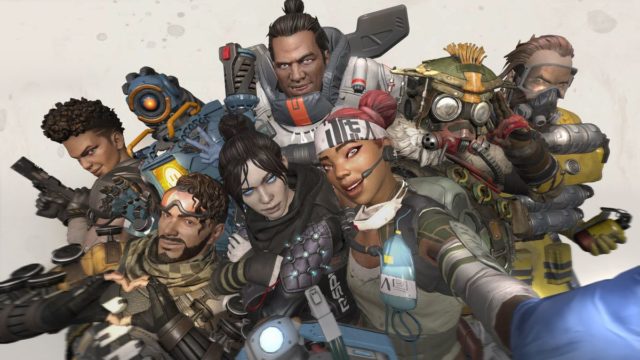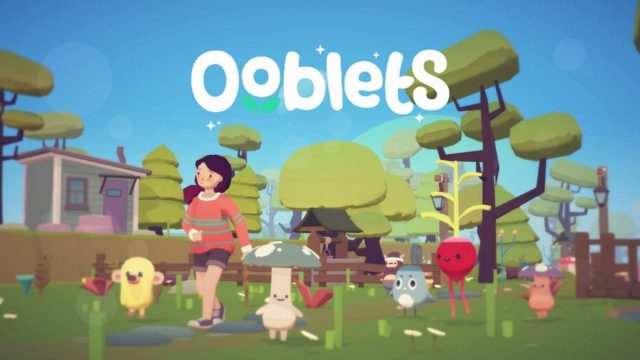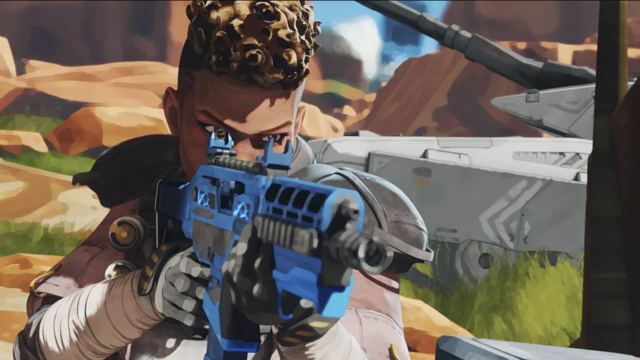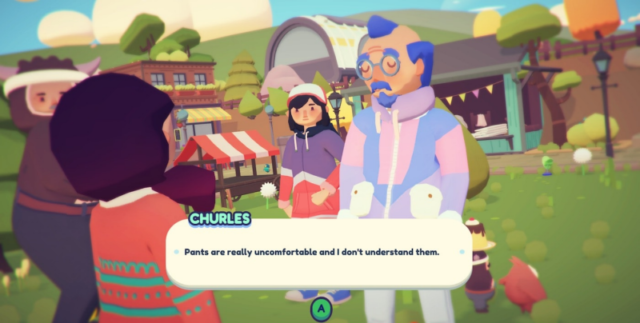The past couple of weeks have been quite a trying time for a couple of game developers. Interestingly, both studios exist on opposite ends of the economic power-structure that makes up the video game industry. On one side is Apex Legends developer Respawn, backed by the financial juggernaut that is EA, and on the other is the husband/wife team of Ben Wasser and Rebecca Cordingley, whose indie studio Glumberland is working on the impending launch of its first game, Ooblets. Both Respawn and Glumberland are in the middle of some seriously bad press as the two studios have made decisions of late which served to stoke the ire of their respective fans. While both devs come from different corners of the video game industry, both are equally emblematic of the ways in which some game studios are exacerbating negative fan/developer interactions.
Respawn recently launched its Iron Crown Collection event in its battle royale game Apex Legends about a week ago, in which fans could purchase 24 different weapons. These weapons could only be obtained via loot boxes which sold for $7 a pop. Granted, it was possible to procure two of these via in-game currency, but anything beyond that cap required real-world money to buy. What really proved to be the proverbial back-breaking straw in this instance was an axe called Raven’s Bite, which could only be purchased once all other weapons in the collection had been bought. All told, in order to get the privilege to own Raven’s Bite, fans were being asked to fork over $170 in total. Yikes.
Fan reaction was swift and furious. Many were outraged by how monetization of the weapons was being handled, and with so much negativity being cultivated, Respawn apologized and opted to switch up the selling format. The studio made it so that fans could instead pay for each weapon individually, with the option of using the game’s currency, as well. It could have ended there, but things took a turn when that same apology was posted on the Apex Legends subreddit page. Fans mercilessly skewered what they perceived to be a disingenuous excuse for the mishap and called out the studio for a litany of different perceived slights against them. At some point in the middle of this chaos, the devs from Respawn who were fielding replies on the thread became incensed and started lashing out at fans, calling them “ass-hats,” a “mob,” and “toxic.” Many of these responses have been deleted by Respawn, but users have screenshots of the posts and are up in arms against the dev, as a result.
Glumberland, meanwhile, had a more convoluted path to controversy. Ben and Rebecca’s game Ooblets, which is described as a mix of Pokémon, Animal Crossing, and Harvest Moon, was seeking money through crowdfunding platform Patreon in order to be brought to market. Throughout the time that Ooblets has been in development (since 2016), Ben and Rebecca have been telling backers that the game would be appearing on PC and Xbox One. Everything was looking fine until Ben made a post on July 31 on the Ooblets website entitled “We did the thing,” in which he explained to fans that Ooblets would be coming to PC… but as an exclusive to the Epic Games Store. The post sparked a maelstrom of outrage, with countless fans taking to social media to vilify Glumberland, citing a number of reasons including a dearth of features in the Epic Games Store and an inability to make purchases in certain locales.
In the case of the Ooblets controversy, the issue has been obfuscated by so-called fans who have been making death threats and personal insults to Ben and Rebecca. It’s unacceptable (and something that will be discussed further in a moment), but it’s ultimately overshadowing the larger problems with Glumberland’s announcement. Fans were told one thing, only to have the rug pulled out beneath them with the jump to Epic. Worse still was Ben’s handling of the post itself, which featured a tone that many have characterized as insulting, mocking, and rude. Ben has returned to the Ooblets webpage to discuss the incident and the impact it’s had on his wife and himself, but it ultimately betrays a tone-deafness that lies at the heart of his, and also Respawn’s, dilemma.
Two devs, two angry packs of fans, one commonality: this is not how to do business. The reason it matters so much is that this is something that doesn’t just impact Respawn and Glumberland, it stretches to the rest of the development community. A big part of the problem is something that both studios have accused fans of being: entitled. Merriam-Webster defines entitlement as the “belief that one is deserving of or entitled to certain privileges,” and associates it with being spoiled. Entitlement has become a buzzword recently for game studios that want to write off fan complaints as little more than the braying of the pampered and coddled, but it’s an oversimplification and in some cases outright inaccurate. In the cases of Respawn and Glumberland, it’s an instance of both.

Looking first at Respawn, one particularly egregious aspect of the developer’s tirade on its subreddit page was the assertion that its fans are freeloaders. It’s a very odd accusation given that Respawn chose to make Apex Legends free-to-play; fans are engaging with the game in the manner that the studio determined is appropriate in accordance with its goals. The title is a free download with microtransactions built-in to raise revenue. Fans aren’t being freeloaders if they’re fulfilling the wishes of the designers to download their game without charge and play it. That microtransactions are there and intended to be a source of income for the studio doesn’t mean fans are beholden to buy anything. This would be like Costco complaining that customers are eating samples and not buying the product outright; if Costco can’t afford to provide samples without charging for them, it would only make sense to end the practice altogether. If fans aren’t partaking in Apex Legends’ microtransactions, how is that the fault of the fans?
The answer is that it’s not the fans to blame, it’s the dev for not providing a product or service that warrants a purchase from consumers. There’s this notion that fans aren’t owed anything, which is true— to an extent. As this writer has asserted countless times, video games are art, but to pretend that games aren’t also entertainment products would be duplicitous. The overwhelming majority of video games that are produced are created for mass consumption, not to sit on a hard drive in someone’s drawer never to see the light of day. Like most products, the people who make them intend to sell them, and to sell them to make a profit. It is at this point that devs and pundits would do well to not overlook the key role that the consumer plays in this relationship. Consumers are not owed anything, but if a development house is going to ask them for money for its product, then certainly there are expectations that will arise and need to be met as a result of that.
In the case of a free-to-play experience like Apex Legends, there’s arguably quite a bit of responsibility on the part of the developer to make the investment into their software worthwhile for the consumer. In these free-to-play games, users have nothing tangible to point to as a part of their monetary contributions. It’s all ephemera; from guns to skins to character skills and everything that can be bought in these sorts of titles, all of the microtransactions that a player chooses to engage in will be rendered null and void once those servers go offline. It’s quite a commitment to make, spending sometimes hundreds of dollars on a video game that the player will never own. Yet, for the way that some developers talk, fans should practically be genuflecting at them just for the privilege of being able to log into their accounts.
This extends to the similar mindset of Glumberland towards its Patreon backers/patrons. As a crowdfunding platform, Patreon differs a bit from Kickstarter in that patrons regularly give money every time that a creator produces work. With Kickstarter, backers invest a single time into a project in anticipation of having the final good or product that’s made distributed to them. Ben and Rebecca’s decision to utilize Patreon was apparently partially motivated by a desire to be free of the constraints of expectations that a Kickstarter would entail. The issue with this logic is that, while legally patrons aren’t entitled to a slice of Ooblets in the way that they would be as Kickstarter backers, there’s clearly an unspoken understanding that these people were paying money in the hopes that Glumberland would deliver the game on the platforms it promised. It’s highly doubtful that Ooblets patrons were solely investing for cat pics (a real funding tier offering).
Some might object to this handshake agreement-mentality; it’s not binding, so why should Glumberland be held to it? The reason is that, well— Glumberland took the money! They asked people for cash, got the cash, then turned around and took Epic’s cash and decided that fans just need to live with their decision. Frankly, fans who were incensed by Ben and Rebecca’s choice and their ensuing update likely will have to live with it, but it isn’t fair to them— or other developers looking to be crowdfunded. As it is, investing in an indie dev, sight unseen, game unseen, is a risky proposition. Titles like Mighty No. 9 are perfect examples of crowdfunding darlings that landed with a thud, and in that game’s case, the pedigree of talent working on the project was exceptional. For smaller studios, though, with zero notoriety or name recognition, it means everything for strangers to trust them and open their wallets, despite past failings from other creators.
Which is, apparently, entirely lost on Glumberland if Ben’s posts are anything to go off of. Again, the word of the day is entitlement; that fans are simply throwing tantrums and demanding things they have no cause to ask for. Yet, as has been pointed out here, the patrons who were generous enough to give money certainly should have some say, even if it’s not a legally binding one. Instead, their unhappiness has been swept aside and is also being derisively dismissed by many a game journo, not just Glumberland. “Toxic fans” tends to be the label, as though the industry is being poisoned by consumers who have the temerity to want their money’s worth. To be fair, though, it’s not all valid complaining on the part of consumers. There’s many a maniac out there who has been saying absolutely unacceptable things to Ben, Rachel, and even the devs at Respawn.
Let’s get something straight: hate, death threats, personal insults— the second any fan veers into that territory they’ve disqualified themselves from the conversation. It’s frightening, disturbing, and when the parties involved can be held accountable, they should be. It’s a trend that isn’t limited to video games, either. Social media as a whole has become a place where people go to scream and rage more than anything else. Discourse has been replaced with outright hate and animosity. In that sense, it’s understandable why a developer could become overwhelmed by fans and meet them with a similar level of venom.
What must also be understood, however, is that a handful of disgusting people doesn’t diminish or invalidate everyone else who is making a reasonable claim of displeasure. Something being lost in all this debate is the fact that in the paradigm of customer and merchant, the customer is always going to be a wild card. Anyone who’s suffered through someone demanding to return some half-eaten chicken nuggets at a fast food restaurant can attest to this. People will say and do things that no one can predict, and whether it’s fair or not, the actions of consumers can shutter a business or send its profits through the roof.
Whether it’s fair or not, whether a developer might feel justified in meeting angry fans with their own anger, it’s not how businesses are run. To his credit, Respawn’s own CEO Vince Zampella took to Twitter following the Reddit incident and apologized for how his crew dealt with fans, stating that Respawn “shouldn’t add to the very thing [it] wants to prevent.” Don’t misconstrue this as an advocation for bad fan behavior, but rather an echo of Zampella’s sentiments: studios simply can’t devolve to the same level as an anonymous poster on a message board. It isn’t a productive practice and all it does is spurn people who aren’t actively being horrible. Consumers are more savvy than ever before and the heightened level of customer awareness is something that extends to video games as much as any other industry.
This isn’t 1980. Fans don’t exist in the same vacuums anymore. A steelbook can’t come within sniffing distance of Greece without consumers everywhere else in the world knowing it and taking to social media to complain. Fans knew the second that the Iron Crown event went live that something was amiss with how the weapons were being sold. To attempt to sidestep that or not address it is, in this information-rich global community of gamers, a huge pratfall. It’s also the sad truth that no one is required to be nice to anyone. People should strive for that and the world would be better off for it, but outside of making legally actionable threats, consumers are going to say what they want and there’s not a thing a developer can do. What Respawn and Glumberland did was an attempt to meet fans “at their level.” If potentially losing customers is a risk they want to take, that’s their right, but it does no favor to other studios that strive to be professional and courteous.
One Respawn dev bemoaned how caustic and negative fan interactions have become. It’s certainly not a good thing and presumably not something any developer wants to deal with when all he’s doing is just trying to make a living. No one goes into game development to tick people off. At the same time, one can’t help but think that this developer and anyone else decrying how outrageous fans can be on social media might need to rethink how their studio interacts with its customers to begin with. Taking to Reddit and Twitter for free market research might sound good at the outset, but it also means stepping into an unregulated, anonymous jungle of bots, instigators, and intentionally mean people. To repeat, none of this is advocating bad behavior, but people do have to be smart and protect themselves to the best of their abilities.
Going off on a bunch of no-names in a subreddit post is like looking for trouble. Again, death threats, personal insults, none of that is okay, but when a dev opens the can of worms that is the internet, it’s childish to not anticipate the perils that will invariably arise. It’s like leaving a phone and wallet on a car seat in full view in the middle of a crime-infested neighborhood. Is it any surprise when the windows are busted out and the owner’s stuff is all gone? No. It is not. Companies like Respawn, which have a great deal of experience in the industry, should at least have the prescience to employ a PR representative to engage with fans, especially when a sensitive topic is at the forefront of a conversation. In the case of Glumberland, at the very least run a prepared statement past someone impartial if there isn’t money for a PR rep.
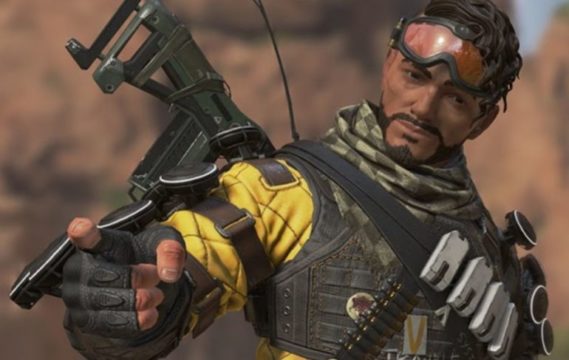
Perhaps more to the point is that these studios need to rethink fan interactions overall. Nintendo has highly controlled interactions with consumers; a couple of prominent Nintendo media personalities once practically jumped out of their shoes when I met them at a gathering and tried to take a photo while they drank champagne. They insisted on putting the glasses down first before I took the shot. Nintendo has a public persona that it wants maintained and strives through everything from print publications to something as simple as a picture at a party to ensure that image is upheld. Fans complain and rail online about Nintendo, of course, but the point is that Doug Bowser isn’t on Twitter flaming people and declaring them “ass-hats.”
In fairness, video games do exist at an odd intersection of art and product. For many creators, there isn’t any difference to them between drafting an illustration or painting a portrait and making a video game; as such, it’s not easy to go online and read a bunch of criticisms about a creation that an entire team of people spent months or years of their lives on. Yet, that’s exactly why it’s important for studios to be cautious in their dealings with the public, to be deliberate in controlling those interactions and keeping them from getting out of hand. Yes, Ooblets is Ben and Rachel’s baby, but it’s also their brand. They can certainly hoist the middle finger at those who don’t like their new standing with Epic, but that also comes with a cost— so don’t be surprised if perhaps Ooblets doesn’t get the warm reception it previously seemed so primed to receive.
After saying all that, I want to be clear: I’m not saying to disrespect developers. I’m not condoning it and I don’t endorse it. I’ve met many devs over the course of my work as a gaming journalist. Hell, I’ve talked shop with some of them about my own issues with fellow writers and how they approach their jobs. We’re all in this together in different ways. The consumer depends on devs for games, devs depend on consumers for revenue, journalists and media personalities depend on games, devs, and consumers for content and an audience. All I’m positing here is that the pendulum is shifting a bit too much to one side— in this case, the side of developers. I think that anyone who makes games for a living should be able to take to social media without fear of harassment. I believe that consumers should pay basic respect to people who aren’t actively trying to ruin their lives.
I also feel, however, that painting complaining gamers as entitled, pampered babies is unfair. There are far more rational consumers complaining about the actions of studios like Respawn and Glumberland than crazy ones, but the focus is instead turned on the latter almost as an excuse to ignore the former. And if that isn’t the intention, then it speaks even more to this idea that some developers need to go back to the drawing board and come up with a new plan for dealing with fans. Social media has broken down many of the walls that had existed between creator and audience, but as developers like Nintendo have known for all too long, some of those walls need to be there. In the meantime, one can only hope that the poor conduct of a handful of studios won’t in the long run negatively impact those who are simply doing their best to keep making the games that everyone loves.




 ShareThis
ShareThis